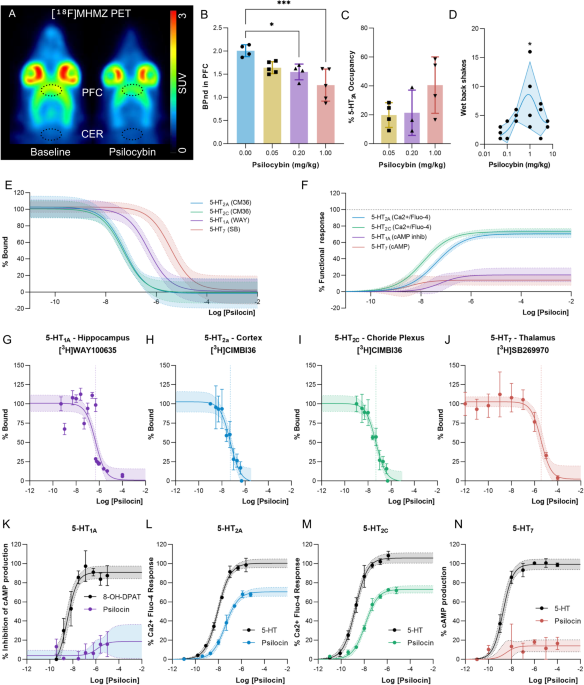6
Repeated low doses of psilocybin increase resilience to stress, lower compulsive actions, and strengthen cortical connections to the paraventricular thalamic nucleus in rats - Molecular Psychiatry
www.nature.comPsilocybin (a classic serotonergic psychedelic drug) has received appraisal for use in psychedelic-assisted therapy of several psychiatric disorders. A less explored topic concerns the use of repeated low doses of psychedelics, at a dose that is well below the psychedelic dose used in psychedelic-assisted therapy and often referred to as microdosing. Psilocybin microdose users frequently report increases in mental health, yet such reports are often highly biased and vulnerable to placebo effects. Here we establish and validate a psilocybin microdose-like regimen in rats with repeated low doses of psilocybin administration at a dose derived from occupancy at rat brain 5-HT2A receptors in vivo. The rats tolerated the repeated low doses of psilocybin well and did not manifest signs of anhedonia, anxiety, or altered locomotor activity. There were no deficits in pre-pulse inhibition of the startle reflex, nor did the treatment downregulate or desensitize the 5-HT2A receptors. However, the repeated low doses of psilocybin imparted resilience against the stress of multiple subcutaneous injections, and reduced the frequency of self-grooming, a proxy for human compulsive actions, while also increasing 5-HT7 receptor expression and synaptic density in the paraventricular nucleus of the thalamus. These results establish a well-validated regimen for further experiments probing the effects of repeated low doses of psilocybin. Results further substantiate anecdotal reports of the benefits of psilocybin microdosing as a therapeutic intervention, while pointing to a possible physiological mechanism.


Goddamn that “in rats” at the end